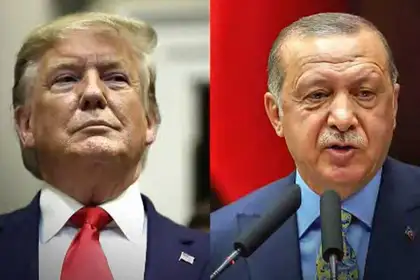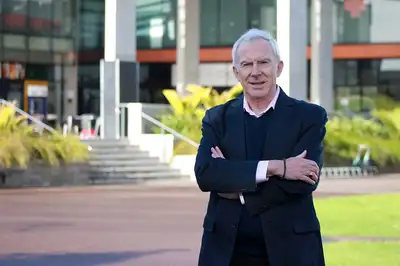
United States President Donald Trump and Turkish President Recep Tayyip Erdoğan.
By Dr Chris Galloway
“Never take anything for granted” – even though, according to Aldous Huxley, most humans have “an almost infinite capacity for doing so”.
Until just days ago, one could be excused for thinking that the map of the Middle East was roughly as stable as this region gets. Not any more, courtesy of a leader with “great, unmatched wisdom” – yes, he really did say that – who cannot have foreseen the scale of the tragedy his decision to withdraw United States troops from northern Syria would unleash. If he did, the most charitable interpretation is that his priorities were elsewhere.
The poor Kurds, of whom about 11,000 have died in fighting ISIS, certainly might have taken for granted that there would be a quid for their pro quo: reciprocal loyalty for their faithfulness. However, that’s not how things appear from the hothouse of a beleaguered ovoid office. Should we care, given that betrayal seems to be stock-in-trade for the political class wherever its conniving reaches?
Yet, we should care, very much. Put aside the idea of an ally being a friend you stick with, even if it costs. Put aside principle to think about the assumptions, now shattered, in the explosions, literal and metaphorical, of what the Middle East might have become without an ISIS stranglehold on hard-done-by civilian populations. Imagine what the world would look like without a resurgent “death cult”, to use Tony Abbott’s tidy trope.

Dr Chris Galloway.
War with bloodshed
ISIS (and I’ve studied and written about them) was never defeated: the multilateral effort to destroy them can never be called “Mission Accomplished”. Of course, they lost most of their physical territory, at tremendous cost to themselves and to those who attacked them.
Yet to a group that believes that its role is to help bring about an apocalyptic end to what we westerners think of as civilisation, a group that sees 200 million Shia Muslims as worthy of death (and many Sunnis, too), abandoning a physical “state” does not mean ceding spiritual ground. When God is on your side, losing a town or a region is a setback, not a full stop.
That’s why, whatever the bluster from Washington suggests, what is unfolding in northern Syria is a disaster, and not only for those suffering right now. The Syrian regime’s forces are assuming control of areas from which they were displaced years ago at heavy cost. America’s standing in the Middle East – often equivocal because of a perceived “Israel at any price” policy – is shredded for a long time to come. And Russia might well rejoice at its expanded opportunities for influence as chaos compounds, even as Turkey – about to be punished with sanctions – pushes deeper into the fog of war.
Former Chinese leader Mao Zedong once noted that “politics is war without bloodshed while war is politics with bloodshed”. What we’re seeing is “politics with bloodshed”, at the behest of strongmen who see themselves as playing their own game, for their own advantage, and the interests alone of the nations they lead. That, at least, we can take for granted.
Dr Chris Galloway is a senior lecturer with Massey University’s School of Communication, Journalism and Marketing. One of his research areas is how ISIS uses social media.